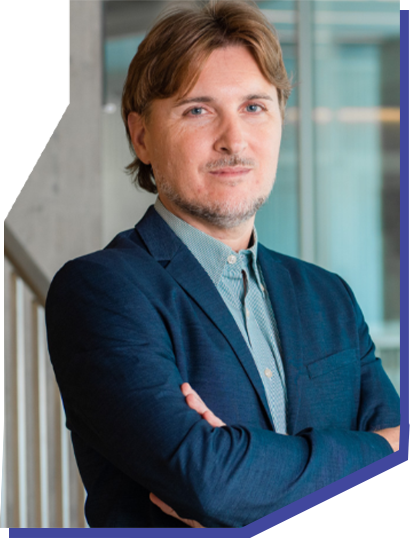
Prof. Francesco Flammini | Professor at the University of Applied Sciences and Arts of Southern Switzerland Dalle Molle Institute for Artificial Intelligence (IDSIA).
Prof. Francesco Flammini
Professor at the University of Applied Sciences and Arts of Southern Switzerland Dalle Molle Institute for Artificial Intelligence (IDSIA).
Short Bio
Francesco Flammini graduated cum laude (M.D., 2003) and got a research doctorate (PhD, 2006), both in Computer Engineering, from the University of Naples Federico II, Italy. He worked for 15 years in private and public companies, including Ansaldo STS (now Hitachi Rail) and IPZS (Italian State Mint and Polygraphic Institute), on large international projects addressing intelligent transportation, critical infrastructure protection and cybersecurity, as a technical leader and unit head. Since 2020, he has been a Full Professor of Computer Science with a focus on Cyber-Physical Systems at Mälardalen University (Sweden), and the Technical Manager of the RAILS EU funded research project about Artificial Intelligence for smart-railways. He is currently a Professor of Trustworthy Autonomous Systems at the University of Applied Sciences and Arts of Southern Switzerland, where he is affiliated with Dalle Molle Institute for Artificial Intelligence (IDSIA) and leads the Trustworthy Autonomous Systems (TAS) research group. Previously, he has been a Senior Lecturer and the chair of the Cyber-Physical Systems (CPS) environment at Linnaeus University (Sweden). He is a Senior Member of the IEEE and a Member-at-Large of the IEEE SMC Board of Governors. He has (co)authored 150+ technical publications, and he has served as a chair, invited speaker, steering/program committee member, and editor for several international conferences and journals.
Talk Abstract
This talk explores risk in connected cyber-physical systems (CPS) and the Internet of Things (IoT), focusing on real-time threat detection, risk estimation, and system reconfiguration based on Self-X principles such as self-diagnostics and self-healing. The presentation will cover the development of model-based approaches for run-time risk evaluation, highlighting the use of multi-paradigm modeling that integrates probabilistic models and formalisms like Petri Nets for dynamic risk assessment. Additionally, it will discuss the application of Digital Twins for proactive dependability and collaborative security in Industry 4.0 and other smart applications. The talk will introduce a conceptual framework that uses autonomic systems for hosting Digital Twins, aiming to enhance the resilience and trustworthiness of CPS through real-time monitoring and self-adaptive mechanisms, ultimately supporting the certification of autonomous systems in critical applications.
